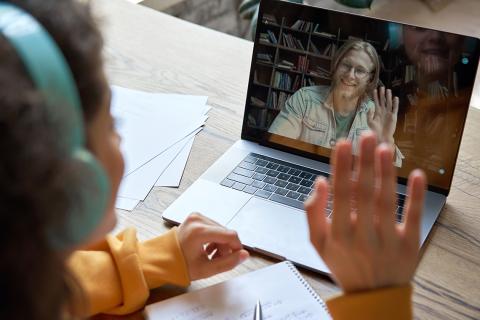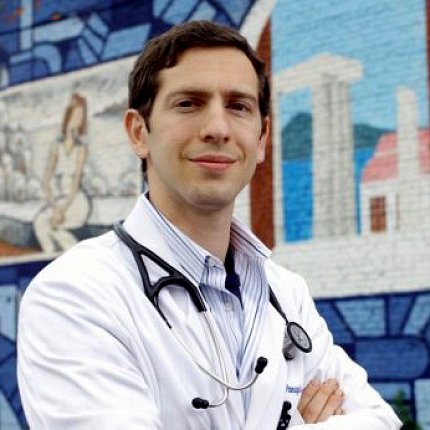Virtual Covid Learning Reaches U.S., International Students

Through a new virtual learning program, Johns Hopkins University students and staff are sharing information about the novel coronavirus with schoolkids.
Dr. Panagis Galiatsatos, a pulmonary and critical care physician at Johns Hopkins Medicine, started the program to teach K-12 students about the science of Covid-19, the disease caused by the coronavirus, and how to protect themselves and others. The project grew university-wide with input from the schools of education and public health.
“This innovative teaching series is an outgrowth of the community engagement that Panagis directs as part of the NIEHS-supported Centers of Excellence on Environmental Health Disparities Research,” said Liam O’Fallon, a health specialist at the institute. “Given the research that their center conducts related to respiratory disease and the environment and their strong community engagement efforts, they were able to respond quickly to the pandemic.”
Under the auspices of Johns Hopkins HEAT (Health Education and Training) Corps and with the aid of trained, volunteer instructors, the covid teaching series is expanding across the U.S. and internationally.
Baltimore teachers, struggling with the coronavirus topic, reached out to Galiatsatos because he had previously taught their students about lung health and air pollution. He took on the challenge of developing a clear way to explain Covid-19 to young people.
“The students want to know more about the disease and they want to help others,” said Galiatsatos. “We want to help students, who may be feeling vulnerable and frightened, find hope and a sense of control.”

Photo: Johns Hopkins Medicine
The curriculum covers many facets of covid, such as its biology, mathematical models of a pandemic, physics behind how a face mask works and the chemistry of handwashing and using sanitizer. There are 12 different lectures. With humor and attention-getting detail, youth are also told how they can make a difference through physical distancing, mask-wearing and handwashing.
“I’m a lung doctor who has been treating Covid-19 patients, and I think calling health care workers the front line is a misnomer,” said Galiatsatos. “I tell the students, who want to help protect others from the virus, that they are the front line of defense. Physicians like me are actually the last line of defense.”
Volunteer instructors range from undergraduate students to resident physicians at JHU. So far this year, about 90 people are trained to teach the curriculum.
After signing up for the program, schools schedule a lecture through a special portal. Then a match is made with an instructor who is available.
The covid teaching series has been requested in 24 states, from Hawaii to New York, and in 5 countries including Cyprus, Guatemala, Ghana, Panama and Tanzania.
Feedback received by the HEAT Corps indicates that although the pandemic disrupts education in the U.S. and other countries, a program like this one is unifying. One teacher said her fifth-grade students felt much better after listening to the instructor and being given the opportunity to ask questions. She added that offering the teaching series is a true demonstration of caring for a community.
